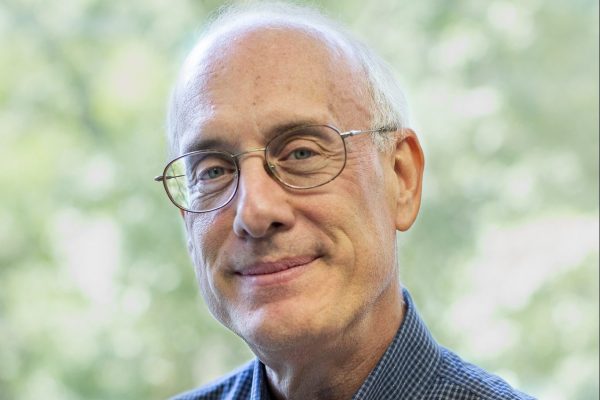March 4, 2020

The first lecture Professor David Lawrence, Ph.D., taught in his laboratory safety course was on a late Friday afternoon in August 2013. The result, he said, was glazed over eyes staring back at him.
The course, an Introduction to Laboratory Safety, is required of all first-year graduate students in the Department of Chemistry and in the Division of Chemical Biology and Medicinal Chemistry in the UNC Eshelman School of Pharmacy. In terms of enrollment numbers, it is one of the largest graduate courses on campus.
Throughout his first semester teaching the course, Lawrence attempted to convey important safety information, but he said it was clear the students found the lectures boring. But there was one exception. One of his lectures dealt with the minute-by-minute unfolding of an unspeakable tragedy that occurred in a chemistry laboratory at the University of California, Los Angeles in 2009. The students engaged in an animated discussion that focused on how the accident could have been averted.
“There is little doubt that the greatest challenge associated with laboratory safety training is attempting to convey practical, yet admittedly mundane, information, in an impactful fashion,” said Lawrence, who is Chair of the Division of Chemical Biology and Medicinal Chemistry in the UNC Eshelman School of Pharmacy. In addition, he holds a joint appointment in the Department of Chemistry, where he is Chair of Safety, and a joint appointment in the Department of Pharmacology. Lawrence is also a member of the UNC Lineberger Comprehensive Cancer Center.
In 2014, Lawrence decide to “flip” his classroom, by having the students learn the rules of safe laboratory conduct by reading assigned material outside of class. He reserved class time for analyzing high profile laboratory accidents that involved students and faculty in academia, as well as scientists in industry.
“The use of case studies is a common teaching device in medicine, law, and business, but such an approach had not been previously used to train students in the proper conduct of scientific research,” he said. Lawrence’s safety course challenged students to apply the rules they learned on their own to develop the proper response to lab mishaps that have previously resulted in deaths, dismemberments and fires.
Lawrence noted that “both the instructor and the students find case studies to be much more appealing than simply reciting rules and regulations. Nonetheless, learning about how to physically perform laboratory research in a classroom setting is a bit like learning how to hit a baseball by reading the rule book. I felt that the course was still missing some key ingredient.”
The problem centered on the question of how best to expose students to the dangers of a laboratory environment without placing them in harm’s way. “I heard about the fascinating work being conducted by the Center for Innovation in Pharmacy Simulation in the School of Pharmacy and realized that virtual reality could very well be the answer,” Lawrence said.
The students in the safety course were tasked with designing and filming safety exercises in a variety of laboratory settings using a 360-degree camera. The photoshoots are being transformed into virtual reality experiences with funding by the Eshelman Institute for Innovation, the Department of Chemistry, and the College of Arts and Sciences.
Lawrence said, “What I’ve learned is to provide students with the opportunity to be creative and to tap into their ingenuity. The course continues to evolve, but now it’s the students who are responsible for creating new course material.”
Because of his contributions to post-baccalaureate teaching on campus, Lawrence is one of this year’s recipients of the prestigious 2020 Distinguished Teaching Award for Post-Baccalaureate Instruction at the University of North Carolina at Chapel Hill.
Lawrence was publicly recognized on March 3 during the halftime ceremony at the UNC-Wake Forest men’s basketball game in the Dean E. Smith Center and will attend an honorary banquet in April.
About receiving the award, Lawrence smiled and simply said, “It felt good.”
Latest News

Dean Angela Kashuba receives Carolina Alumni Faculty Service Award

RASP poster presentations capture student research


